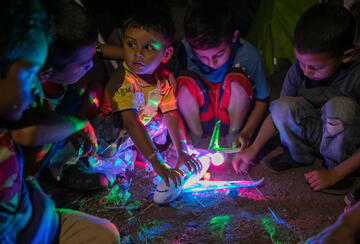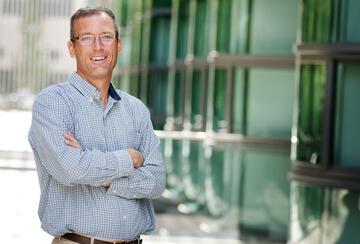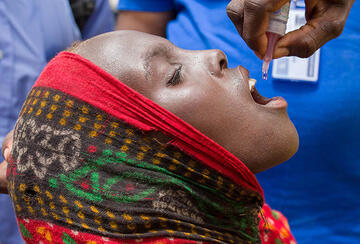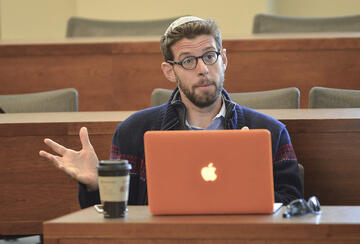SHP's Lee Sanders and his Stanford colleagues found that after adjusting for socioeconomic status and compared with full-term births, moderate and late preterm births are associated with increased risk of low performance in mathematics and English language arts, as well as chronic absenteeism and suspension from school.
Mary Goldstein, an expert on evidence-based clinical practice guidelines, gets recognition for her work from the 1990s — a knowledge-based clinical decision support (CDS) system still serving the VA Palo Alto Health
Care System today.
The impact of the COVID-19 pandemic has been starkly uneven across race, ethnicity and geography, according to a new study led by SHP's Maria Polyakova.
A new four-paper series in The Lancet exposes the far-reaching effects of modern warfare on women’s and children’s health. Stanford researchers, including SHP's Paul Wise and Eran Bendavid, have joined other academics and health-care experts in calling for an international commitment from humanitarian actors and donors to confront political and security challenges.
New research by SHP's Maya Rossin-Slater shows that borderline ADHD diagnoses appear to be behind the dramatic increase in the number of cases in the last few decades. Those cases also appear to have a snowball effect in that younger siblings and cousins of children who receive these marginal ADHD diagnoses are often diagnosed with the condition as well.
Stanford Law School health law experts Michelle Mello and David Studdert, also professors of medicine at Stanford Health Policy, share insights into the government’s response and offer hope that science —and unbiased scholarly research — can help curtail the rising toll of COVID-19.
SHP's Joshua Salomon and colleagues offer an alternative approach to COVID-19 vaccine distribution — modeling a flexible strategy that would result in an additional 23% to 29% of COVID-19 cases averted compared with the current fixed strategy,.
The most comprehensive study of American children who experience gun violence at school finds they are less likely to graduate from high school or enroll in college — and less likely to hold a job as a young adult. Co-authored by SHP's Maya Rossin-Slater, the researchers estimate a loss in lifetime income of $115,550 per shooting-exposed student.
New research by Maria Polyakova and Petra Persson — both faculty fellows at the Stanford Institute for Economic Policy Research — shows that socioeconomic status is hereditary and getting stronger over time. Children who grow up in poor households are likely to work low-wage jobs as adults. Adult kids of high-income parents typically have higher incomes themselves.
The Uncertain Impact of Accelerating Science
The urgency of the coronavirus pandemic has led to enormous research efforts and some shortcuts. Michelle Mello, a professor of medicine and law, and David Magnus, a professor of medicine and biomedical ethnics, write in this Scientific American commentary that the scientific surge to understand COVID-19 is inspiring — but has led to some ethical dilemmas.
The world of economics has not always opened its arms to women — in fact it can be outright hostile. But the field influences so much public policy, so SHP medical economist Maya Rossin-Slater brings together other early career economists to mentor and encourage aspiring economists from around the world.
The COVID-19 pandemic has hit Black and Hispanic populations harder than most for a variety of socioeconomic and medical reasons. Two Stanford PhD students are investigating what interventions might work to combat the racial disparities.
California and its 58 counties have issued more than 1,500 public health orders since the beginning of the COVID-19 pandemic. A team of Stanford researchers has put those orders into a dataset to help policymakers and public health officials plan and protect.
Hannah Fung — a PhD candidate in biology at the School of Humanities and Sciences and a member of the SHP COVID modeling team — talks to us about a new study that shows 17% of COVID-19 patients pass the virus onto others in their households.
SHP's Jeremy Goldhaber-Fiebert, David Studdert and Michelle Mello write in this JAMA Health Forum Insight that school reopening efforts must account for characteristics of the communities within which schools are embedded.
Most Americans think colorectal cancer is a disease of the elderly. But more young people — particularly Black men and women — are falling to the country's third deadliest type of cancer. The U.S. Preventive Services Task Force hopes to change that by lowering the age of routine testing to 45.
Stanford Health Policy's Michelle Mello and Stanford medical student Yasmin Rafiei write in this New England Journal of Medicine perspective that most school reopening plans focus on screening for Covid-19 symptoms. Yet recent research indicates that symptom screening alone will not enable schools to contain Covid-19 outbreaks.

With unaccompanied minors being detained in hotels during COVID-19, Stanford professor of pediatrics Paul Wise is among the few external people with full access to the facilities, detained children, and the agencies responsible for their care.

Election to the National Academy is considered one of the highest honors in the fields of health and medicine, recognizing individuals who have demonstrated outstanding professional achievement and commitment to service.
Epidemiological modeling has emerged as a crucial tool to help decision-makers combat COVID-19, with calls for non-pharmaceutical interventions such as stay-at-home orders and the wearing of masks. But those models have become ubiquitous and part of the public lexicon — so Nirav Shah and Jason Wang write that they should follow an impact-oriented approach.
School shootings are a horrific U.S. phenomenon. And the tragedies aren’t limited to the shootings themselves. SHP's Maya Rossin-Slater finds that fatal shootings have a lingering impact on the mental health of those who survive them.
An estimated 1.8 million African children have been spared crippling paralysis, and 180,000 lives have been saved. Lessons from this success can inform our global response to COVID-19.
Goldhaber-Fiebert will become the Society of Medical Decision Making's next secretary-treasurer. “SMDM has been bringing together the global methodological leaders in decision science for health and medicine for decades,” he says.
For a recent 1:2:1 podcast, Stanford Medicine's Paul Costello asked Stanford Health Policy's Jason Wang about best practices for keeping schools safe and why it's important for kids to have in-person learning when possible.



























